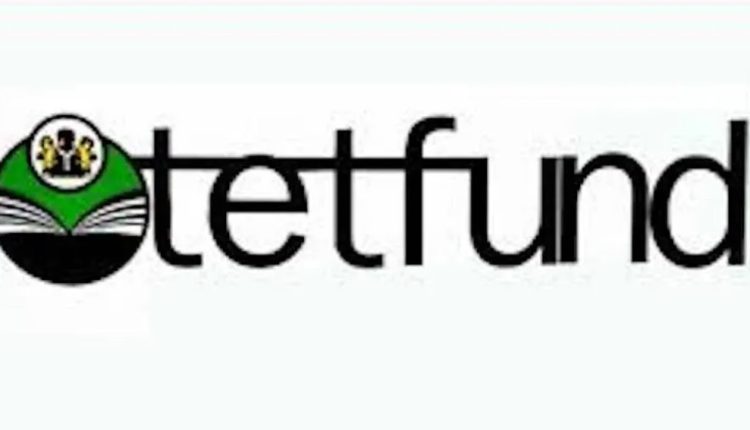Education budget: TETFund urges FG to meet 15-20% UNESCO recommendation
|
Getting your Trinity Audio player ready...
|
Executive Secretary of the Tertiary Education Trust Fund (TETFund), Arc. Sonny Echono has said Nigeria should strive to meet the UNESCO recommendation of allocating 15%-20% of its national budget to education against the 7% it was currently working with.
Echono stated this on Tuesday while delivering the 13th Convocation Lecture for the Nile University, Abuja
Speaking on the topic, Redefining the Nigerian Education System for the 21st Century Workforce, he noted that the government and all key stakeholders need to improve the funding for education to ensure that educational institutions are adequately equipped with digital tools, state- of -the- art laboratories and qualified instructors.
He cited examples of countries such as Rwanda and Kenya who allocated 18% and 16% of their national budgets to education, respectively in 2021 resulting in significant strides in educational development.
The Executive Secretary further stated that the Nigerian education curriculum at all levels required a significant overhaul to meet the needs of the global labor market.
“Current curricula, especially at the secondary and tertiary levels, do not reflect the job market demands of the 21st century. Aligning Nigeria’s education curriculum with global labour market demands is crucial for preparing students for the future workforce, which Is increasingly shaped by technological advancements, automation, and globalization.
“The Nigerian curricula should integrate digital literacy, entrepreneurship education, and technical skills across all education levels. Subjects such as data science, renewable energy technologres, artificial intelligence, and financial literacy should be common in secondary and tertiary institutions”, he said.
Echono explained that eventhough Nigeria was churning out thousands of graduates annually, youth unemployment continues to rise, leading to high underemployment, social unrest, and associated economic challenges. The missing link, he said was an education system that was grossly misaligned with the requirements of the modern labour market.
To reverse this, he said, “the promotion of the integration of ICT in our education delivery to expand digital literacy across Nigeria is essential for future-proofing the Nigerian education system. According to the Nigerian Communications Commission (2022), only 35% of Nigerian students had access to Internet services in 2020, due largely to the lack of broadband infrastructure in the rural areas”.
According to Echono, for Nigeria’s education system to be rightly positioned for the 21st century workforce, the country needs to institute comprehensive professional development framework whereby the teachers are empowered with the relevant skills and resources necessary for modern pedagogy.
To address the high unemployment rate faced by the country, the TETFund Boss advised providing entrepreneurship education and training that equips students with the skills and mindset to become job creators rather than job seekers. “By providing entrepreneurship education and training, tertiary institutions can help foster a culture of entrepreneurship and innovation, leading to the creation of new businesses, jobs and industries”, he said.
Consequently, he lamented that technical and vocational education and training were underutilised despite their great potential to address the country’s high rate of youth unemployment. He therefore urged the country to draw inspiration from the successful models of vocational systems in countries such as Germany and South Korea, which implemented dual education systems that combine academic education with vocational training.
“Far-reaching reforms that promote vocational education and training are crucial for equipping Nigerian students with practical skills directly applicable to the job market.
“The mandatory skill qualification policy and the introduction of the National Skill Qualification Framework (NSQF) for promoting hands-on skills acquisition, being championed by NBTE, aim to integrate vocational training into the mainstream education system. Additionally, the new technical and vocational education and training (TVET) initiated by the Federal Ministry of Education is highly
commendable”, he said.
On Science, Technology, Engineering, and Mathematics (STEM) Education, the Executive Secretary stated that STEM education is regarded as a veritable platform for building essential skills such as critical thinking, creativity, and problem-solving, which prepare students for a technology-driven workforce and facilitate innovation to address real-world challenges.
“Although priority attention is being increasingly accorded to STEM education in Nigeria, there is a need to further deepen our commitment and funding of STEM education to enhance the competitiveness of our graduates for the 21st-century workforce”, concluded.
Earlier, in his welcome address, the Vice- Chancellor of Nile University, Prof. Dilli Dogo said in the next two years, 40 -50% of executive jobs will become obsolete, therefore, “if we have to move with time, we have to be creative thinkers, we have to be innovative and we have to make sure that graduates of universities must contribute deliberately to economic and national development”.



Comments are closed, but trackbacks and pingbacks are open.